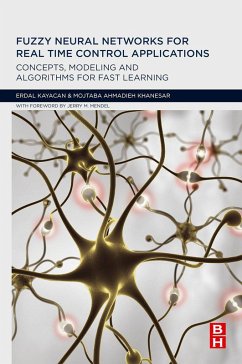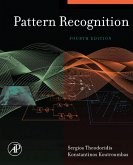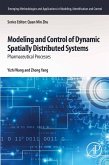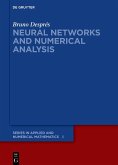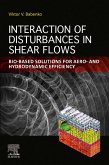Delve into the type-2 fuzzy logic systems and become engrossed in the parameter update algorithms for type-1 and type-2 fuzzy neural networks and their stability analysis with this book!
Not only does this book stand apart from others in its focus but also in its application-based presentation style. Prepared in a way that can be easily understood by those who are experienced and inexperienced in this field. Readers can benefit from the computer source codes for both identification and control purposes which are given at the end of the book.
A clear and an in-depth examination has been made of all the necessary mathematical foundations, type-1 and type-2 fuzzy neural network structures and their learning algorithms as well as their stability analysis.
You will find that each chapter is devoted to a different learning algorithm for the tuning of type-1 and type-2 fuzzy neural networks; some of which are:
. Gradient descent
. Levenberg-Marquardt
. Extended Kalman filter
In addition to the aforementioned conventional learning methods above, number of novel sliding mode control theory-based learning algorithms, which are simpler and have closed forms, and their stability analysis have been proposed. Furthermore, hybrid methods consisting of particle swarm optimization and sliding mode control theory-based algorithms have also been introduced.
The potential readers of this book are expected to be the undergraduate and graduate students, engineers, mathematicians and computer scientists. Not only can this book be used as a reference source for a scientist who is interested in fuzzy neural networks and their real-time implementations but also as a course book of fuzzy neural networks or artificial intelligence in master or doctorate university studies. We hope that this book will serve its main purpose successfully.
- Parameter update algorithms for type-1 and type-2 fuzzy neural networks and their stability analysis
- Contains algorithms that are applicable to real time systems
- Introduces fast and simple adaptation rules for type-1 and type-2 fuzzy neural networks
- Number of case studies both in identification and control
- Provides MATLAB® codes for some algorithms in the book
Dieser Download kann aus rechtlichen Gründen nur mit Rechnungsadresse in A, B, BG, CY, CZ, D, DK, EW, E, FIN, F, GR, HR, H, IRL, I, LT, L, LR, M, NL, PL, P, R, S, SLO, SK ausgeliefert werden.

